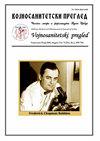不同漱口水对通用胶粘剂体系牙釉质粘接强度的影响
IF 0.2
4区 医学
Q4 MEDICINE, GENERAL & INTERNAL
引用次数: 0
摘要
背景/目的。虽然含有精油的漱口水有一些优点,但它们对通用树脂胶粘剂系统与牙釉质的结合强度有什么影响尚不清楚。本研究的目的是评价含精油漱口水对通用粘接系统牙釉质粘接强度的影响。方法。使用了96个牛门牙。根据对照组和3种不同的漱口水将牙齿分为4个不同的组:I组(对照组)-蒸馏水,II组-李斯德林凉薄荷(精油漱口水),III组-氯罗本(0.12%葡萄糖酸氯己定漱口水)和IV组- Oxyfresh(0.05%氟化钠漱口水)。根据通用胶粘剂的使用方式(蚀刻-漂洗方式或自蚀刻方式)将每组分为两个亚组(n = 12)。每天在牙釉质表面使用漱口水30秒,持续一个月,然后将样品浸泡在蒸馏水中。在万能试验机上以1 mm/min的速度进行剪切粘结强度(SBS)试验后,对SBS数据进行统计学分析(p = 0.05)。结果。双因素方差分析显示,口腔漱口水对万能胶的牙釉质粘接强度没有影响,而使用方式对万能胶的牙釉质粘接强度有显著影响。结论。本研究中所测试的含香精油漱口水和其他漱口水的使用,就被测试粘合剂的牙釉质粘接质量而言是安全的。本文章由计算机程序翻译,如有差异,请以英文原文为准。
The effects of various mouth rinses on enamel bond strength of a universal adhesive system
Background/Aim. Although essential oil-containing mouth rinses have some advantages, it is not well-known what effects they have on the bond strength of the universal resin adhesives system to the enamel. The aim of the study was to evaluate the effect of essential oil-containing mouth rinse on the enamel bond strength of the universal adhesive system. Methods. The ninety-six bovine incisors were used. The teeth were divided into four different groups according to the control group and 3 different mouth rinses: Group I (Control) - distilled water, Group II - Listerine Cool Mint (essential oil mouth rinse), Group III - Kloroben (0.12% chlorhexidine gluconate mouth rinse) and Group IV - Oxyfresh (0.05% sodium fluoride mouth rinse). Each group was divided into two subgroups according to the application mode of the universal adhesive (etch-and-rinse mode or self-etch mode) (n = 12). Mouth rinses were applied daily for 30 sec to the enamel surfaces for a month and the samples were soaked in distilled water. After the shear bond strength (SBS) tests were performed with the universal test machine at a speed of 1 mm/min, the SBS data were statistically analyzed (p = 0.05). Results. Two-way ANOVA showed that enamel bond strength of universal adhesive was not affected by mouth rinse and was significantly affected by the application mode. Conclusion. The use of essence oil-containing mouth rinse and other mouth rinses tested in the study is safe in terms of the quality of enamel bonding of the tested adhesive.
求助全文
通过发布文献求助,成功后即可免费获取论文全文。
去求助
来源期刊

Vojnosanitetski pregled
MEDICINE, GENERAL & INTERNAL-
CiteScore
0.50
自引率
0.00%
发文量
161
审稿时长
3-8 weeks
期刊介绍:
Vojnosanitetski pregled (VSP) is a leading medical journal of physicians and pharmacists of the Serbian Army. The Journal is published monthly.
 求助内容:
求助内容: 应助结果提醒方式:
应助结果提醒方式:


